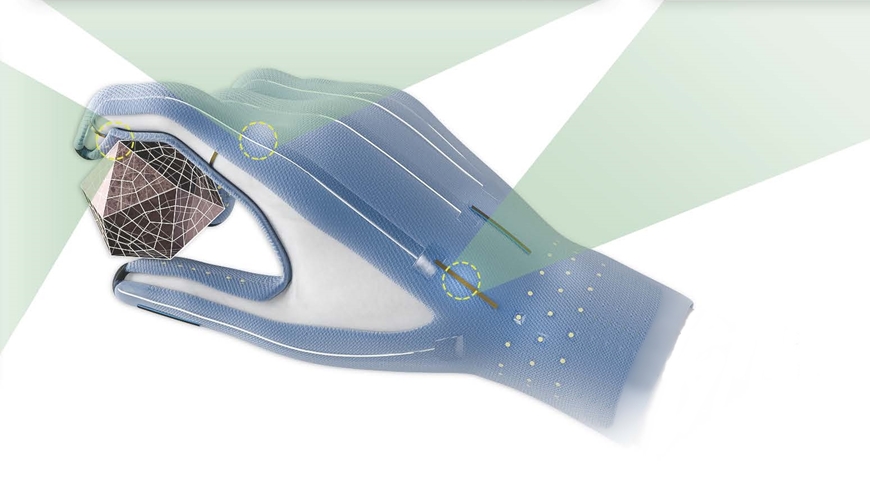
A next generation VR glove could make virtual surfaces in the Metaverse feel real and objects tangible at the right size. According to a press release, three teams are collaborating on this project known as Manufhaptics, which has been set up to run for a period of four years. The teams are based at the Swiss Federal Laboratories for Materials Science and Technology (Empa) in addition to the Swiss Federal Institute of Technology in Zurich (ETH) and the Swiss Federal Institute of Technology in Lausanne (EPFL). The project is being headed up by Herbert Shea from the Soft Transducers Lab at EPFL.
In order to make objects and surfaces feel real in the Metaverse, the teams plan to integrate three different types of actuators into the glove. For example, nubs are designed to grow up on the underside of the fingers, which imitate a certain texture. Electrostatic brakes are mounted around the finger joints, which stiffen the glove and block the joints. This is intended to simulate larger, solid objects that offer resistance when touched.
The Empa subproject relates to electroactive polymers from which the third type of actuators called DEAs (dielectric elastomer actuators) are made. They tighten the outer skin of the glove on the back of the hand so that it fits perfectly in all areas. According to Empa Research Director Dorina Opris, these electroactive polymers “react to electric fields and contract like a muscle”.
To achieve this, up to 1,000 fine layers of a newly developed solvent-free polymer and a current-conducting layer have to be superimposed in the 3D printer. So far, only about ten of them have been successful and the artificial muscle from the 3D printer is still not functioning optimally. The only scientific competition in this field comes from Harvard University in the US State of Massachusetts.
Related news
Contact us
Can we put you in touch with a peer company or research institute? Do you need any information regarding your strategic expansion to Switzerland's technology and business center?
info@greaterzuricharea.com